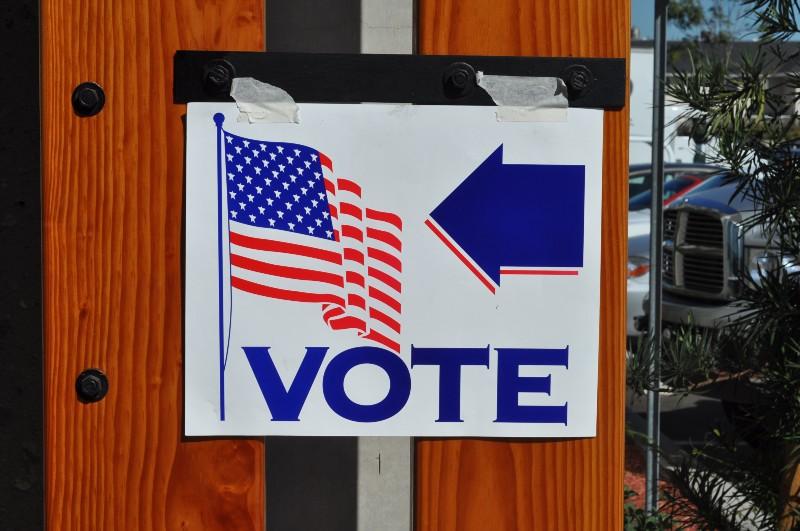Feel-Good Victims Rights Legislation Doesn’t Help Victims
This November, Ohio voters will consider a ballot measure that, if approved, will add new crime victim protections to the state constitution. The proposed constitutional amendment is called the Ohio Crime Victims Bill of Rights or Marsy’s Law. It is based on a similar victims rights bill enacted in California in 2008, named for Marsalee “Marsy” Nicholas, a University […]

This November, Ohio voters will consider a ballot measure that, if approved, will add new crime victim protections to the state constitution.
The proposed constitutional amendment is called the Ohio Crime Victims Bill of Rights or Marsy’s Law. It is based on a similar victims rights bill enacted in California in 2008, named for Marsalee “Marsy” Nicholas, a University of California Santa Barbara student who was stalked and killed by her boyfriend in 1983.
The Ohio version of Marsy’s Law would give crime victims the right to notification of all legal proceedings involving their case. Victims would also have the right to weigh in on plea deals, receive restitution, and to be notified when their perpetrator is released from custody. But state law and the Ohio constitution already contain victims rights provisions similar to Marsy’s Law.
Proponents argue that existing victims rights laws are not enforced, but Marsy’s Law does not address the problem of enforcement nor does it create a cause of action for damages or compensation against the state or a political subdivision if government violates victims’ constitutional rights.
Also, it could have unintended financial consequences, needlessly straining an already overburdened criminal justice system.
The Ohio Office of Management and Budget predicted that Marsy’s Law could impose significant costs on the local level, “particularly as they relate to the court system and public defender costs borne by counties.”
Its language also expands the definition of victim and treats low-level crime and violent crime too similarly.
It broadly defines “victim” to include those “directly or proximately harmed.” Critics, including public defenders, private defense attorneys, and prosecutors, have warned that this definition goes beyond, for example, a shooting victim in a store robbery, to cover the store owner and even the store’s insurance company.
The measure also puts violent crime on the same level as a low-level property crime, whereas existing victims rights laws are limited to felonies and certain misdemeanor offenses. While Ohio already has well-established protocol for providing notice and assistance to victims of violent crime, the services provided to victims of lower-level crimes — like petty theft, fraud, or harassment — are less clear. And while current law allows a victim to provide a statement during particular proceedings, Marsy’s Law would allow a victim or a victim’s representative to assert his or her rights in any proceeding involving the criminal offense. At the very least, extending services to victims of lower-level crimes would slow down court proceedings, which would be detrimental to victims.
Worst of all, Marsy’s Law could impinge on the fundamental rights of people accused of crimes.
For example, the measure would allow a victim to refuse an interview, deposition, or discovery requests, all at a moment when criminal defense attorneys already face huge obstacles in obtaining the discovery they need to effectively represent their clients. And in its effort to protect victims’ privacy, Marsy’s Law could erode a defendant’s right to confront his or her accuser.
Furthermore, allowing a victim to intervene at any stage in a criminal proceeding could threaten a defendant’s fundamental rights to fairness and a speedy trial.
Writing about a 2016 Marsy’s Law initiative in Montana, retired state Supreme Court justice James C. Nelson explained how making victims’ rights paramount to the rights of defendants could actually jeopardize cases:
If the defendant’s constitutional rights to a fair trial, to due process, to effective assistance of counsel, to confront and meet accusers and witnesses face to face and to compulsory process of witnesses [are compromised], both Montana and federal constitutional law may require that the charges against the defendant be dismissed or may require a second trial — the victims’ rights notwithstanding.
This is contrary to the interests of victims.
Rather than passing feel-good legislation, the best thing we can do for victims is solve serious crimes like murder and rape, as clearance rates for both have fallen to scandalous levels. In Detroit, for example, only 14 percent of killings were cleared in 2016. In Las Vegas police cleared only about 9% of rapes. Victims do not need expensive programs freighted with Sixth Amendment issues. They need justice.
